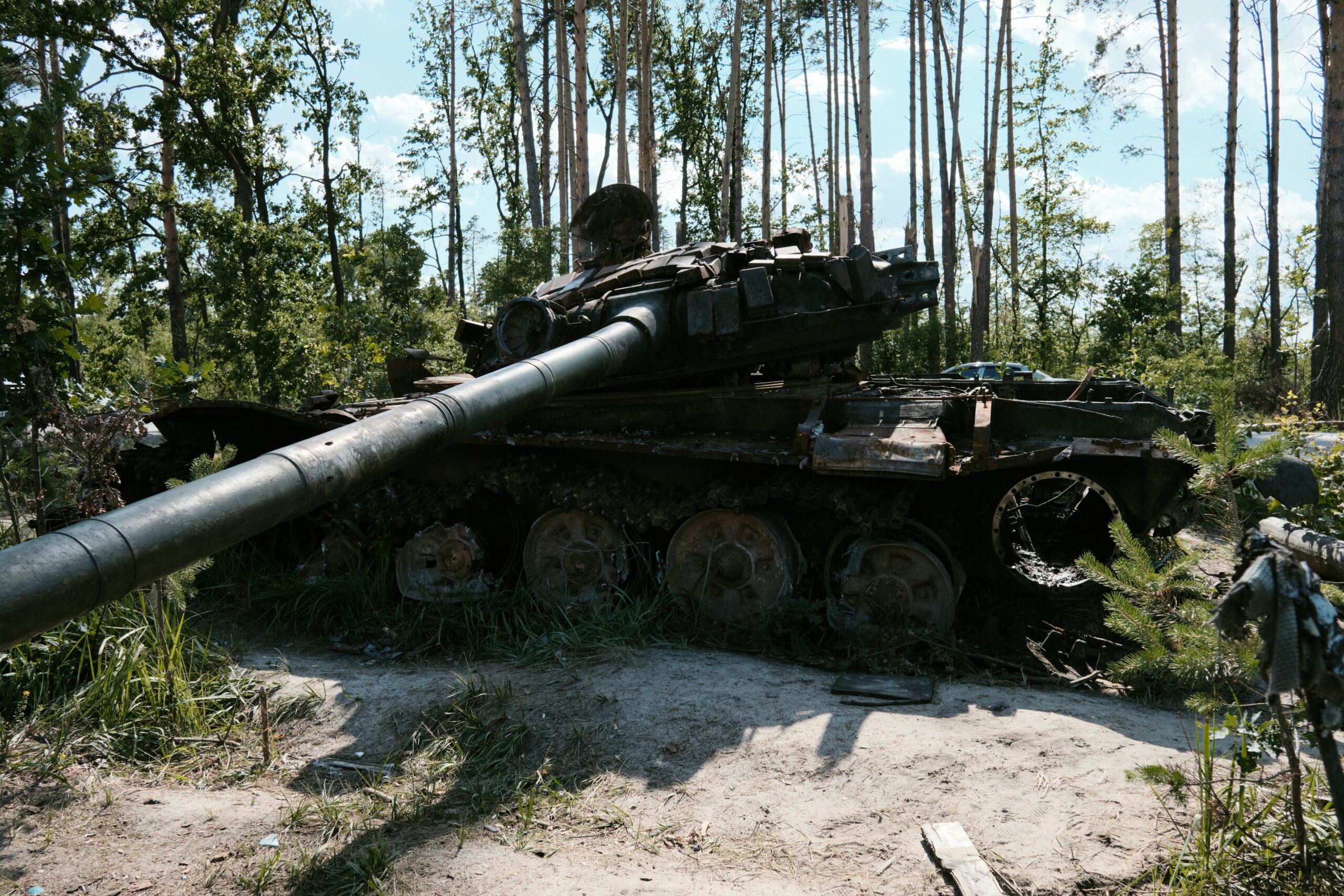Introduction: The Ukraine Conflict and Global Leadership
The ongoing conflict in Ukraine has emerged as a pivotal issue in contemporary international relations, attracting significant attention from global leaders and institutions. It began in 2014 when Russia annexed Crimea, leading to a series of destabilizing events in Eastern Ukraine. The conflict not only affects the immediate region but has broader implications for global security and democratic values. Various world leaders have taken positions on the Ukraine crisis, with Ukrainian President Volodymyr Zelensky and former U.S. President Donald Trump being particularly prominent figures. Their actions and statements reflect differing national interests and strategies concerning Ukraine’s sovereignty and territorial integrity.
President Zelensky’s leadership has been instrumental in rallying domestic and international support for Ukraine. He embodies the resolve of a nation under siege, advocating for military aid, economic sanctions against aggressors, and the reintegration of occupied territories. His efforts have positioned Ukraine in the global spotlight, emphasizing the need for strategic partnerships and collective defense agreements, particularly with Western nations. Conversely, Donald Trump’s administration had a distinct approach towards Ukraine, marked by a complex intertwining of foreign policy and domestic politics. Trump’s actions often focused on transactional diplomacy, which sometimes included contentious discussions regarding military assistance to Ukraine and its implications.
The differing approaches of these leaders underscore the intricacies of global leadership today, where conflicts are not only matters of national border disputes but also reflect deeper ideological divisions and realpolitik strategies. This dynamic interplay between Zelensky’s urgent calls for solidarity and Trump’s strategic maneuvering offers a lens through which to understand the broader implications of the Ukraine conflict. As we delve into this relationship further, it is essential to consider how their actions shape international relations, influence global security frameworks, and affect the geopolitical landscape in a time of heightened tensions.
Zelensky’s Rise to Power and Leadership Style
Volodymyr Zelensky, a former comedian and television producer, emerged as a significant political figure in Ukraine, capturing the presidency in April 2019. His rise to power can be traced back to his unconventional approach to politics and an extensive career in entertainment. Harnessing his charisma and adept communication skills, Zelensky positioned himself as a candidate of change, appealing directly to the younger electorate and those disillusioned with traditional political establishments.
Zelensky’s presidential campaign was seamlessly intertwined with his portrayal of a fictional president in the popular television series “Servant of the People.” This background not only endeared him to a wide demographic but also allowed him to resonate with the populace’s yearning for transparency and integrity in leadership. As he assumed office, initial public approval ratings soared, largely attributed to his promises of reform and his status as a political outsider.
However, Zelensky’s leadership style stands out for its reliance on modern communication tactics, often utilizing social media platforms to engage with citizens directly. This approach has helped him maintain a connection with the Ukrainian people, promoting a sense of inclusivity and responsiveness rarely seen in past administrations. His handling of the ongoing conflict with Russia further tested his leadership; his ability to address the nation during times of crisis was crucial in bolstering public morale and solidarity against external threats.
In this dynamic landscape, public perception of Zelensky has evolved—initial admiration faced challenges amid political strife and societal pressures. Yet, his commitment to tackling corruption and fostering national unity continues to define his leadership ethos. In navigating Ukraine’s complex political terrain, Zelensky’s adeptness at communication and his charismatic persona remain pivotal aspects of his presidency’s trajectory.
Trump’s Foreign Policy Approach and Ukraine
During his tenure as President, Donald Trump’s foreign policy toward Ukraine was marked by a complex interplay of factors, including diplomatic strategy, domestic politics, and international relations. Initially, the Trump administration appeared to support Ukraine’s sovereignty and territorial integrity, especially in the context of the ongoing conflict with Russia. However, controversies arose concerning the conditions under which military aid was released to Ukraine. Reports indicated that the administration sought to leverage this aid to pressure Ukrainian officials into investigating political rival Joe Biden’s son, Hunter Biden, leading to allegations of a quid pro quo.
The military aid provided by the Trump administration included lethal weaponry such as Javelin anti-tank missiles, which were viewed as critical for strengthening Ukraine’s defense capabilities against Russian aggression. Despite this support, Trump’s overall demeanor toward NATO and European allies raised eyebrows. His skepticism towards NATO funding and a transactional view of international alliances led some analysts to question the consistency and reliability of U.S. support for Ukraine.
Moreover, Trump’s dismissal of certain foreign policy conventions significantly affected Ukraine’s security landscape. His approach shifted the traditional U.S. stance, often seen as pivotal in ensuring European security against Russian encroachment. Detractors argued that his unilateral decisions could diminish U.S. influence in the region and embolden Russia’s assertiveness. Conversely, supporters of Trump’s policy contended that he brought a fresh perspective, focusing on America’s interests while attempting to forge a more independent Ukrainian stance. Overall, Trump’s foreign policy toward Ukraine highlights the intricate balance between supporting an ally’s sovereignty and navigating domestic political challenges, as the country sought to secure its borders amid rising tensions with Russia.
The Zelensky-Trump Relationship: Key Events and Interactions
The relationship between Ukrainian President Volodymyr Zelensky and former U.S. President Donald Trump has been shaped by a series of key events that underscore the complexities inherent in U.S.-Ukraine relations. One of the most pivotal moments occurred on July 25, 2019, when Trump and Zelensky engaged in a controversial phone call. During this conversation, Trump allegedly solicited Zelensky’s assistance in launching an investigation into Joe Biden and his son Hunter. This particular interaction became a focal point in a broader political dispute, ultimately leading to an impeachment inquiry against Trump by the U.S. House of Representatives.
The fallout from the phone call resulted in heightened scrutiny of U.S. foreign policy and the extent to which domestic politics can influence international relations. Critics argued that Trump sought to leverage military aid to Ukraine, which was crucial in countering Russian aggression, as a means to further his political interests. The subsequent impeachment inquiry revealed the intricate ties between American domestic politics and international alliances, raising questions about the stability of U.S.-Ukraine relations during and after this tumultuous period.
Additionally, the dynamics of their relationship were characterized by further interactions, such as Zelensky’s attendance at the 2019 United Nations General Assembly, where he sought to garner support from global leaders amid increasing tensions with Russia. Trump’s public support for Ukraine, despite the controversies, demonstrated a complex duality in their relationship. The interplay of military aid discussions, diplomatic engagements, and the broader geopolitical landscape has set a precedent for how current and future U.S. administrations might navigate relationships with countries like Ukraine.
Media Portrayal and Public Perception
The intricate dynamics between media portrayal and public perception of political figures such as Volodymyr Zelensky and Donald Trump offer valuable insights into contemporary geopolitics, particularly regarding Ukraine. Media narratives often play a fundamental role in shaping how leaders are perceived, influencing public approval ratings and political capital. In the case of Zelensky, his ascent to prominence, particularly during the Ukraine crisis, has been closely monitored by both domestic and international media. Approval ratings for Zelensky have fluctuated significantly during pivotal moments, notably when he addressed the public amidst escalating tensions with Russia. These media depictions have largely been favorable, underscoring his resilience and commitment to national sovereignty, which resonated with the public and bolstered his image as a steadfast leader.
Conversely, Donald Trump’s coverage in relation to Ukraine has been more contentious. His administration’s approach toward Ukraine was scrutinized rigorously, especially during the impeachment inquiries that centered around his dealings with Ukrainian officials. The media’s portrayal of Trump oscillated between aggressive criticism and occasional support, affecting his approval ratings among different segments of the population. The framing of his foreign policy strategies toward Ukraine—including his push for investigations into political opponents—has resulted in a polarizing perception among American voters. This dichotomy in media coverage reflects broader societal divides, impacting Trump’s overall image concerning international relations.
Furthermore, both figures’ approvals are intricately tied to specific media narratives that highlight their roles in the Ukraine conflict. Zelensky is often cast as a hero standing against aggression, while Trump is presented in a more complex light, characterized by a blend of transactional diplomacy and controversial political maneuvers. These narratives not only shape public perceptions but also influence voters’ support during electoral processes, revealing how media framing can significantly impact political discourse surrounding key issues like Ukraine.
Keith Kellogg and His Role in U.S.-Ukraine Relations
Keith Kellogg, a retired Army lieutenant general, played a pivotal role as a national security advisor within the Trump administration, significantly influencing U.S. policies regarding Ukraine. Kellogg’s experience in military and security matters, combined with his strategic perspective, positioned him as a crucial adviser to President Trump, especially during a time when the relationship between the United States and Ukraine was fraught with complexity due to the ongoing conflict with Russia.
Throughout his tenure, Kellogg emphasized the importance of a robust stance against Russian aggression, advocating for stronger support for Ukraine’s sovereignty and territorial integrity. His recommendations often highlighted the need for a comprehensive approach that balanced military aid with diplomatic efforts. By stressing the necessity of U.S. support for Ukraine, Kellogg sought to reinforce America’s commitment to its allies in the face of external threats. This alignment was particularly salient given the backdrop of Russia’s annexation of Crimea and its continued involvement in the eastern regions of Ukraine.
Kellogg’s insights were instrumental in shaping the administration’s strategies, especially during critical negotiations concerning military assistance and economic support for Ukraine. His views often aligned with those of other national security personnel who believed that a failure to provide adequate assistance could embolden Russian aggression further. By advocating for a clear message of U.S. solidarity with Ukraine, Kellogg played a vital role in clarifying the administration’s position on foreign intervention in Eastern Europe.
Moreover, Kellogg’s legacy in U.S.-Ukraine relations highlights the intricate balance between military readiness and diplomatic engagement. His tenure illustrated how military advisers can impact policy decisions in complex geopolitical scenarios. As the dynamics between the U.S., Ukraine, and Russia evolve, the influence of key advisors like Kellogg remains a crucial factor in determining future policy direction.
Trump’s Legacy: Continuing Influence on Ukraine
The legacy of Donald Trump, particularly concerning U.S.-Ukraine relations, continues to shape the dynamics of American foreign policy even after his presidency. Trump’s administration was marked by a controversial approach to Ukraine, which included withholding military aid contingent on investigations into his political opponents. This unprecedented tactic has left a profound and polarizing impact on how subsequent administrations navigate their relationships with Ukraine. Many analysts argue that Trump’s actions created uncertainty regarding U.S. commitments, thereby complicating Ukraine’s position as it faces ongoing challenges from Russia.
The effects of Trump’s presidency on Ukraine extend beyond immediate policy decisions and have seeped into the broader geopolitical landscape. For instance, the focus on investigations and domestic political benefits detracted from the strategic dialogue that previously characterized U.S.-Ukraine relations. This shift has led to an environment in which Ukraine must continually reassess its alliances and seek stability amid tensions with Russia and internal challenges. Critics argue that the transactional nature of Trump’s interactions has made it harder for Ukraine to rely on steady U.S. support in the long term.
Moreover, Trump’s continued influence over the Republican Party has implications for U.S. foreign policy moving forward. His presidency established a precedent for approaching international relations through a lens of personal interest and political gain, which may affect future negotiations and agreements with foreign nations. The longstanding rhetoric within the party regarding Trade and NATO has further complicated bipartisan support for Ukraine, as opinions about Trump’s legacy remain divisive among U.S. lawmakers.
The interplay between Trump’s legacy and U.S.-Ukraine relations illustrates a complex web of influence that continues to evolve. As Ukraine seeks to consolidate its sovereignty and navigate the pressures of regional dynamics, it must also consider the long-term implications of Trump’s administration and the ongoing sentiments within U.S. political circles.
The Current Status of Ukraine and Zelensky’s Approval Ratings
The situation in Ukraine continues to be profoundly shaped by the ongoing conflict with Russia, which has persisted since 2014 and escalated dramatically in February 2022. As Ukrainian forces engage in a robust defense against Russian aggression, the complexities of wartime governance have placed President Volodymyr Zelensky’s leadership under intense scrutiny. In this turbulent environment, Zelensky has maintained a significant level of public support, largely attributed to his proactive stance and commitment to sovereignty.
Zelensky’s initial rise to power in 2019 was marked by a promise to eradicate corruption and implement reforms. However, the dynamics shifted swiftly with the resumption of full-scale hostilities. As the war unfolded, Zelensky’s image morphed from that of a political outsider into a symbol of national resilience and unity. His ability to rally the populace and communicate effectively with both Ukrainians and the international community has been pivotal in reinforcing public trust, often reflected in his fluctuating approval ratings.
Recent surveys show that during critical moments in the conflict, such as successful military offensives or significant international aid announcements, Zelensky’s approval ratings surged. Conversely, challenges like economic downturns and mounting casualties tend to provoke public dissent and skepticism toward his administration. Nevertheless, the overarching sentiment has often returned to support when faced with the specter of external threats. Research indicates that around 70% of Ukrainians have consistently expressed favorable views of Zelensky during pivotal points in the war.
The continued struggle against Russian forces, coupled with the humanitarian crisis, has complicated the public’s expectations. As Ukraine navigates this complex landscape, Zelensky’s leadership is likely to depend heavily on not only military outcomes but also how effectively his government addresses the pressing needs of its citizens. Overall, this unique wartime context has significantly influenced Zelensky’s approval ratings, shaping a dynamic political landscape in a nation fighting for its future.
Conclusion: Navigating the Future of U.S.-Ukraine Relations
The relationship between the United States and Ukraine has evolved significantly, particularly through the dynamics introduced by the leadership of both President Volodymyr Zelensky and former President Donald Trump. As the geopolitical landscape continues to shift, it is imperative to consider the implications of these relationships on future U.S.-Ukraine ties. The intertwining of domestic politics with international relations creates a complex framework that both nations must navigate carefully.
Zelensky’s tenure has been marked by a steadfast commitment to increasing Ukraine’s integration with Western allies, an objective that aligns closely with U.S. interests in promoting democracy and stability in Eastern Europe. Conversely, Trump’s approach, characterized by his unconventional diplomatic style, raised questions about the reliability of U.S. support at times. Evaluating these contrasting approaches provides valuable insights into how future leadership in the U.S. may either strengthen or hinder Ukraine’s aspirations.
As the world faces ongoing challenges, including economic instability and security threats, U.S.-Ukraine relations will likely hinge on various factors: the resiliency of Ukraine’s democratic institutions, the ability of U.S. political leadership to maintain a bipartisan consensus on foreign aid, and the broader context of U.S. global strategies. Future leaders will need to consider not only past engagements but also the evolving expectations of Ukrainian citizens and the international community. Ultimately, the foundation of U.S.-Ukraine relations will depend on a mutual commitment to addressing pressing issues collaboratively, reinforcing democratic values, and ensuring regional security.
In conclusion, the interplay of leadership styles and national priorities will shape the trajectory of U.S.-Ukraine relations in the coming years. By understanding these complex dynamics, stakeholders can work towards fostering a partnership that enhances stability and resilience in the face of transnational challenges.



